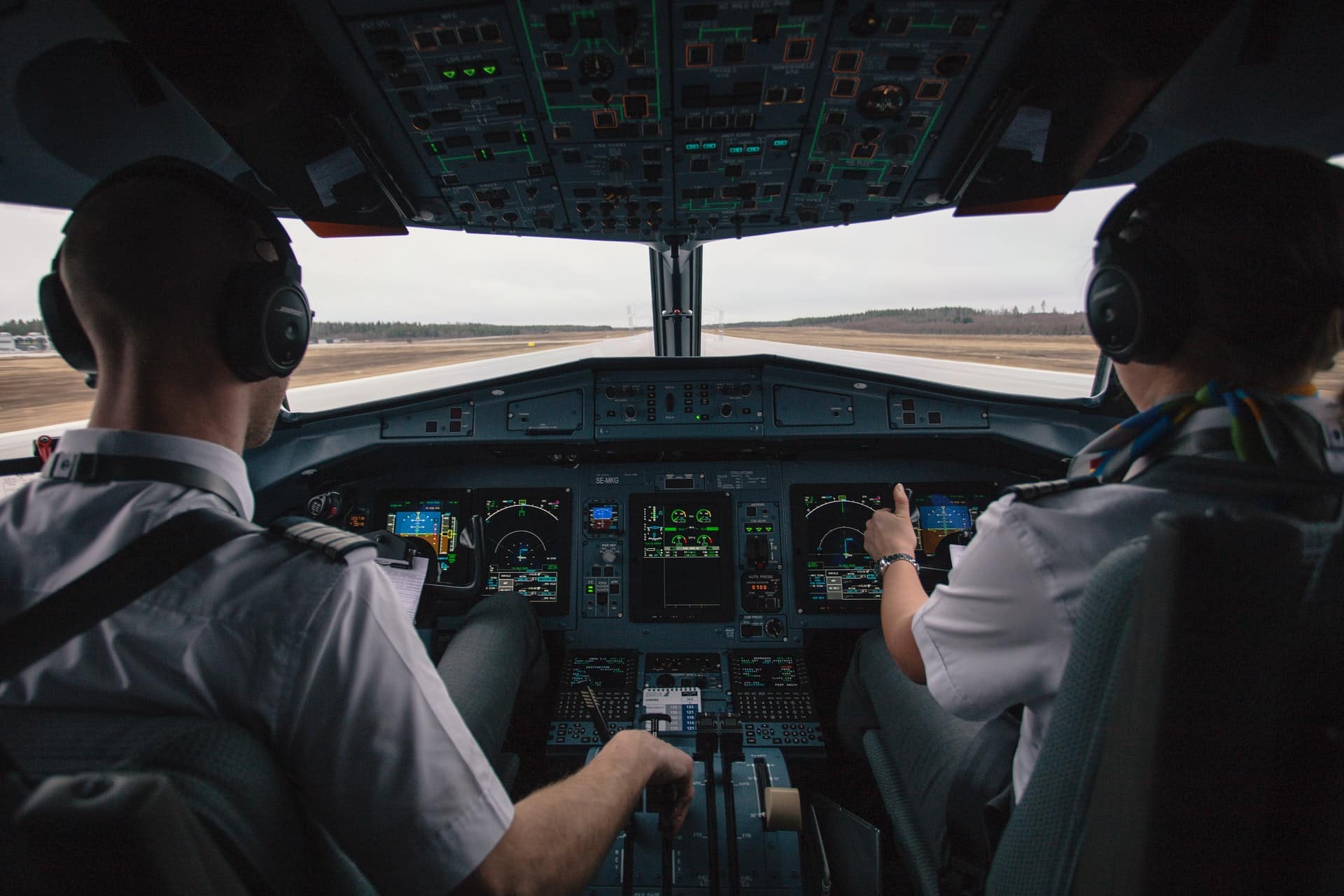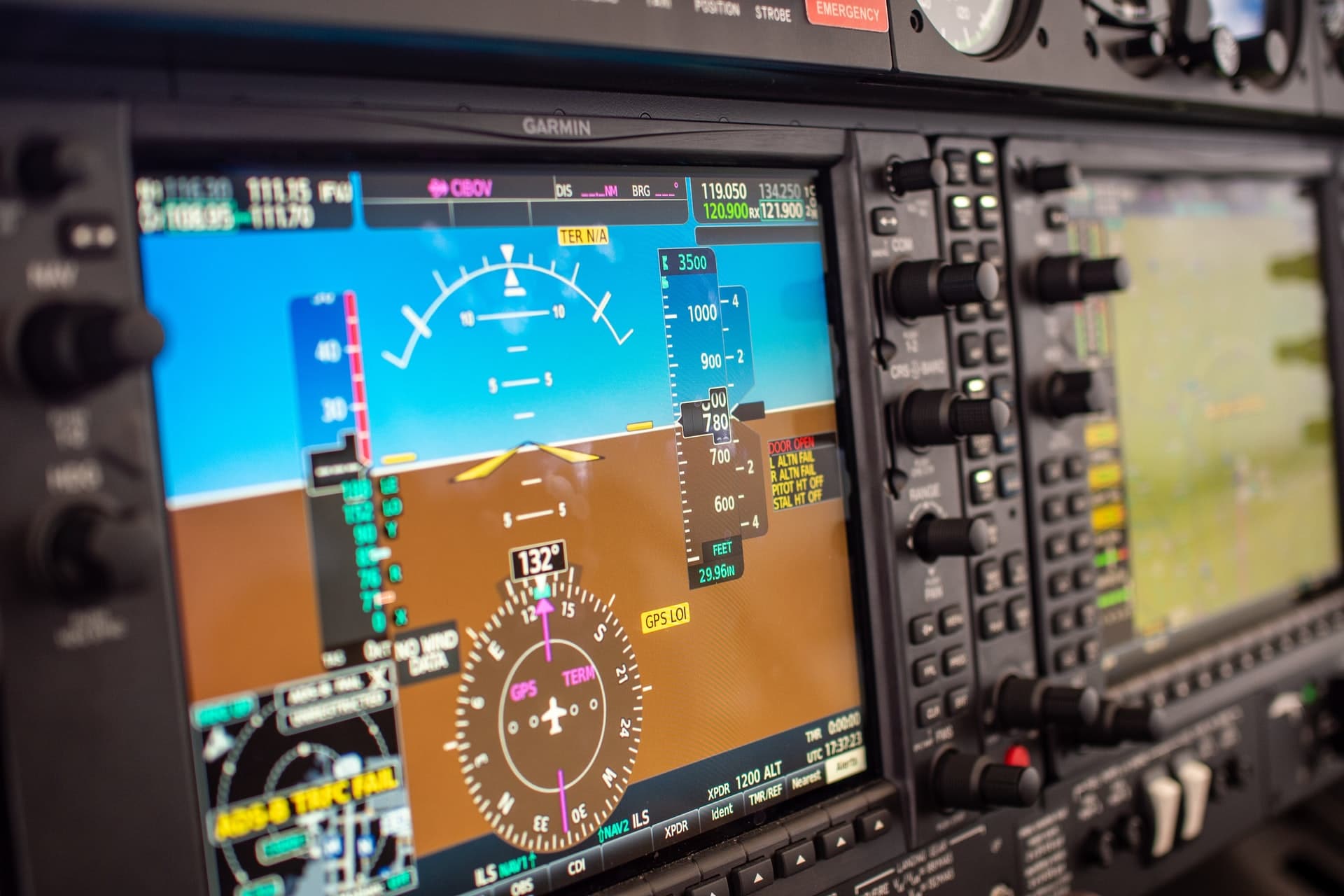Aviation Careers: Is Flight School For You?
Updated: June 19, 2024
Published: April 8, 2021

If you have your head in the clouds and mind set on how things fly, then exploring aviation careers could be a match made in heaven for you.
The industries of aviation and aerospace have a lot of career options for those who enjoy flying or working alongside pilots and mechanics. While some require nothing more than a high school diploma to obtain, others may require bachelor’s degrees or certifications.
Let’s take a look at some common careers in aviation, as well as the required education. This way, you can get a feel for the options in the space and prepare to enter the aviation field.
What is Aviation?
Aviation refers to the science of flying and designing aircraft. Within the discipline of aviation, you will find air traffic controls, aerospace engineers, pilots, aircraft equipment mechanics, and more. Aerospace encompasses all types of flying vehicles, from commercial jets to military planes and even space crafts. With the wide range of duties required to fly an aircraft, there exists many different job titles.
Depending on the position you wish to hold in the field, a certification from the Federal Aviation Administration (FAA) may be required, as is such for pilots and air traffic control specialists. Or, there are entry-level positions in administration and customer service that require less education to obtain.

Careers in Aviation
From ground support to those in charge of the flight, let’s take a look at some of the common careers in aviation:
Airport Manager
Airport managers oversee how airports function. They manage the maintenance and safety of the airfield as well as airline scheduling. They work behind the scenes, but are crucial to the functioning of an airport.
Air Traffic Controller
Air traffic controllers direct the movement of aircraft both on the ground and in the air. They communicate with crews and pilots to issue landing and takeoff instructions. They work inside an air traffic control tower on the airport’s property. The demanding job can literally be the difference between life and death, so it requires utmost attention to detail and organization.
Quality Control Personnel
Quality control inspectors check that an aircraft and its maintenance procedures are falling in line and meeting regulations. They are responsible for ensuring communication devices and air traffic controls adhere to Federal safety regulations.
Pilot
Airline pilots operate aircrafts. They are responsible for following safety protocols while flying the aircraft. Depending on how long a pilot has been flying, they can earn “seniority” status and move their way up the system that ranks as: Captain, First Officer, and Flight Engineer. To become an airline pilot, it’s preferred to have a bachelor’s degree and required to pass the FAA’s pilot requirements.
Manufacturing Engineer
Aircraft manufacturing engineers develop and implement systems within aircrafts. They also meet production quotas and create maintenance programs to ensure aircrafts continue to function safely. It’s a highly technical job that requires both an engineering degree and on-the-job training.
Airport Operations Manager
Since airports function like businesses, they require operations managers to manage the day-to-day aspects of business management, personnel management, public relations, and finances. Their job spans many responsibilities including budgeting, enforcing regulatory rule, and training employees. At the very least, an airport operations manager must have a bachelor’s degree in airport management.
Airfield Operations Specialist
Airfield operations specialists communicate and coordinate between air-traffic control and maintenance personnel. They aid in dispatching, implementing airfield safety protocols, and maintaining flight records. They also keep an eye on weather information to coordinate airfield landing and navigation.
Aerospace Engineer
Aerospace engineers are responsible for designing and building aircrafts and spacecraft. They can work on planes, missiles, and launch vehicles. They work on creating prototypes and oversee that their productions are safe and suitable for flight. Aerospace engineers can earn a degree in the specific field of aerospace engineering, or an aviation degree with a specialization in aerospace engineering coursework.
How to Get Started in Aviation
Landing a career in aviation will require different education depending on the position. For example, a flight attendant needs a high school diploma and training. An airport operations manager requires a bachelor’s degree in airport management or business administration.
Regardless of what position you wish to obtain, it’s useful to gain hands-on experience and seek opportunities that can boost your knowledge of the industry. This could entail joining a club or network and attending aviation conferences, for example.
Skills that Benefit Aviation Careers
The field of aviation is ripe with many technical positions that are related to engineering and mathematics. Even the positions that aren’t tied to these disciplines will require close attention to detail and problem-solving abilities.
Since there is no one job that works entirely alone in the field of aviation, it’s really important to have strong communication skills. You’ll get to work in teams and across divisions to make sure that everything is operating smoothly. Ultimately, these jobs all play a major role in servicing people and making sure that everyone is safe when traveling.
Because of the high risks involved, the airline industry is highly regulated. This means that no matter what position you hold, it’s vital to take your job seriously and be able to work well under pressure.
Combined with the above skills, education and training play a large role in breeding success in the field. In most cases, a high school diploma or bachelor’s degree will be needed to obtain a job in aviation.
Furthermore, because the nature of most jobs in the field are highly specialized, there’s a high chance you’ll take part in on-the-job training programs.

Conclusion: Take Flight
According to the U.S. Bureau of Labor Statistics, air traffic is expected to grow. This means that there will be a greater demand for airplane pilots, airport personnel, and aircraft manufacturers.
Additionally, the field of aerospace is constantly evolving because of advents with technologies. For example, aerial imaging devices and helicopter technology continues to improve, which means that highly skilled professionals must be ready to take on the new challenges.
The constantly changing nature of air travel makes it an exciting and opportune time to enter the profession. Whether you wish to be a pilot and fly a plane or stay on the ground and manage air traffic control, there are a variety of careers in aviation that offer rewarding experiences.
